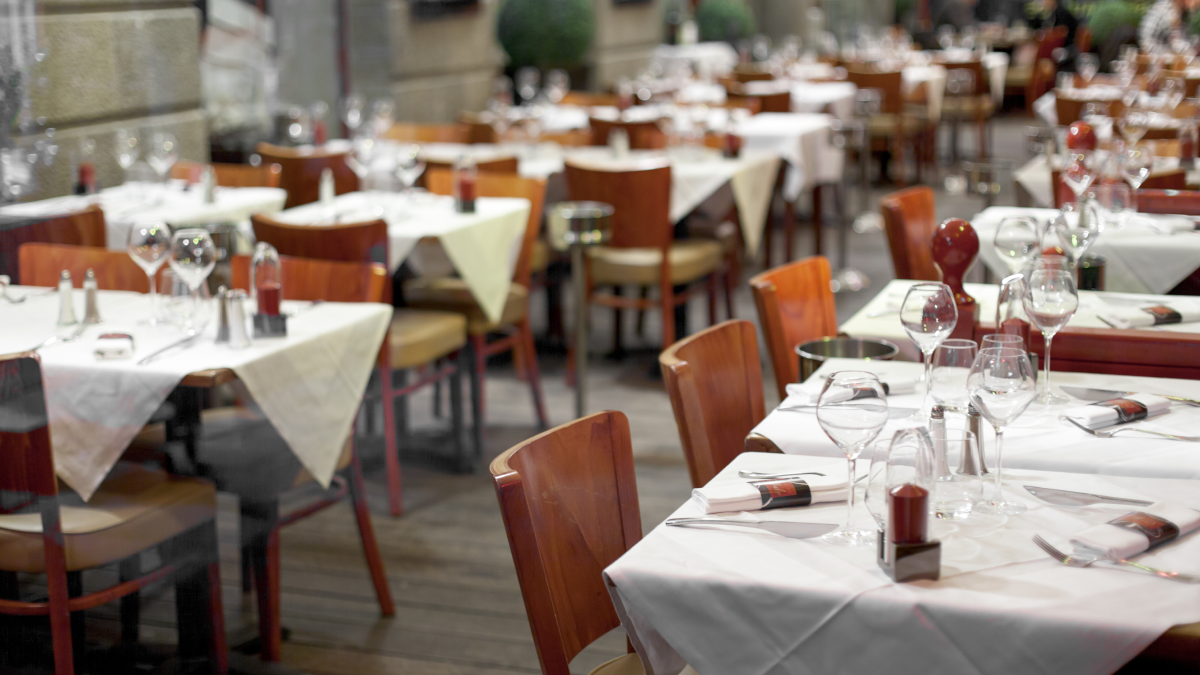When it comes to phones for restaurants, modern solutions fail to offer the proper customization to ensure a great guest experience while also adapting to what they need.
Your host stand might be slammed during the lunch rush while your events team is stuck in back-to-back meetings. Meanwhile, catering inquiries and reservation requests keep rolling in, each representing potential revenue slipping through the cracks.
Modern guests expect immediate responses but also want to talk to the right person to help them. In this article, we’ll examine how voice AI answering can alleviate these issues by offering operators more customization.
Stagnant Tech in an Age of Innovation Restaurant technology has evolved dramatically over the past decade. From sophisticated POS systems to automated inventory management, phone systems have remained surprisingly unchanged.
Restaurants operationalize innovative tech like data analytics, cloud-based scheduling, and digital ordering platforms. But when it comes to handling phone calls, they're stuck with solutions that don't come close to stacking up.
Traditional phone systems force operators to conform to inflexible routing rules, which creates constant challenges for management teams who must ensure that every call reaches the right person at the right time.
The Cost of Inflexible Phone Systems The negatives pile up when phone systems can't adapt to your needs.
Picture this: a potential client calls about a large private event for 50 guests, but they reach a host juggling a packed dinner service. What’s more, the usual person specializing in events is unavailable. The host, unable to properly handle the inquiry, promises a callback that gets lost in a hectic dinner service.
And just like that, a potential revenue opportunity slips through the cracks.
Introducing Scheduled Call Handling Voice AI answering is one solution to overcoming stagnant phone technology, and Slang AI recently debuted a new feature for all customers: Scheduled Call Handling.
Think of it as having a brilliant receptionist who knows exactly when your catering team is available and how to handle calls during off-hours. Essentially, you can customize how and when Slang’s voice AI Concierge routes calls based on your business needs.
Now available in the Slang AI dashboard! Here’s a look at specific use cases for this feature:
Host stand availability: During staffed hours, calls are routed to the host stand for immediate attention. Outside those hours, Slang AI's Concierge informs callers that the host stand is unavailable and redirects callers to alternative contact methods (e.g., email or SMS text).Event and catering inquiries: Restaurants can use this feature to route calls during their working hours, ensuring inquiries about special events or catering reach the right staff member. For after-hours, callers can receive an SMS text link to an intake form or an event email address.Seasonal or holiday adjustments: Restaurants with adjusted hours during holidays can use Scheduled Call Handling to manage callers' expectations, ensuring they are informed of changes and provided alternate contact methods.Maximizing Revenue With Custom Call Routing Custom call routing directly impacts your bottom line by ensuring no opportunity slips away. When potential guests call about hosting a holiday party, they're immediately connected with your events team during business hours.
Outside those hours, they receive a text message with your events package and a link to start the booking process. Doing it this way will keep the revenue opportunity alive even when staff isn't available.
This flexibility proves invaluable for restaurant groups during seasonal changes or special events. Scheduled Call Handling lets you customize routing rules, ensuring guests receive accurate information and proper handling regardless of when or where they call.
Making the Most of Scheduled Call Handling Getting started with Scheduled Call Handling is straightforward, but here are a few pointers to get the most out of it.
Understand staffing hours: Clearly identify when key personnel (e.g., host staff, events team) are available and configure your schedule to route calls accordingly.Communicate internally: Ensure all team members, especially general managers and customer-facing staff, understand how Scheduled Call Handling is configured. This helps ensure clarity among staff and guests.Provide alternative contact options: When staff is unavailable, offer callers options such as a text link to an intake form, an email address, or a voicemail system. Tailor these options to your specific needs.Monitor and adjust regularly: Review and update your Scheduled Call Handling settings regularly to reflect changes in staffing, operating hours, or special events. This ensures consistency in guest communication.Take Back Control Your restaurant's phone system should work as hard as your team. Scheduled Call Handling gives you the flexibility to ensure that every call contributes to your success.
By routing calls to the right people at the right time, you can focus on what matters most: delivering exceptional experiences to your guests, both on the phone and in your restaurants.
Ready to make your phone system work smarter for your restaurant group? Book a quick demo with our team to learn how Scheduled Call Handling can enhance your operations and capture more revenue opportunities.



